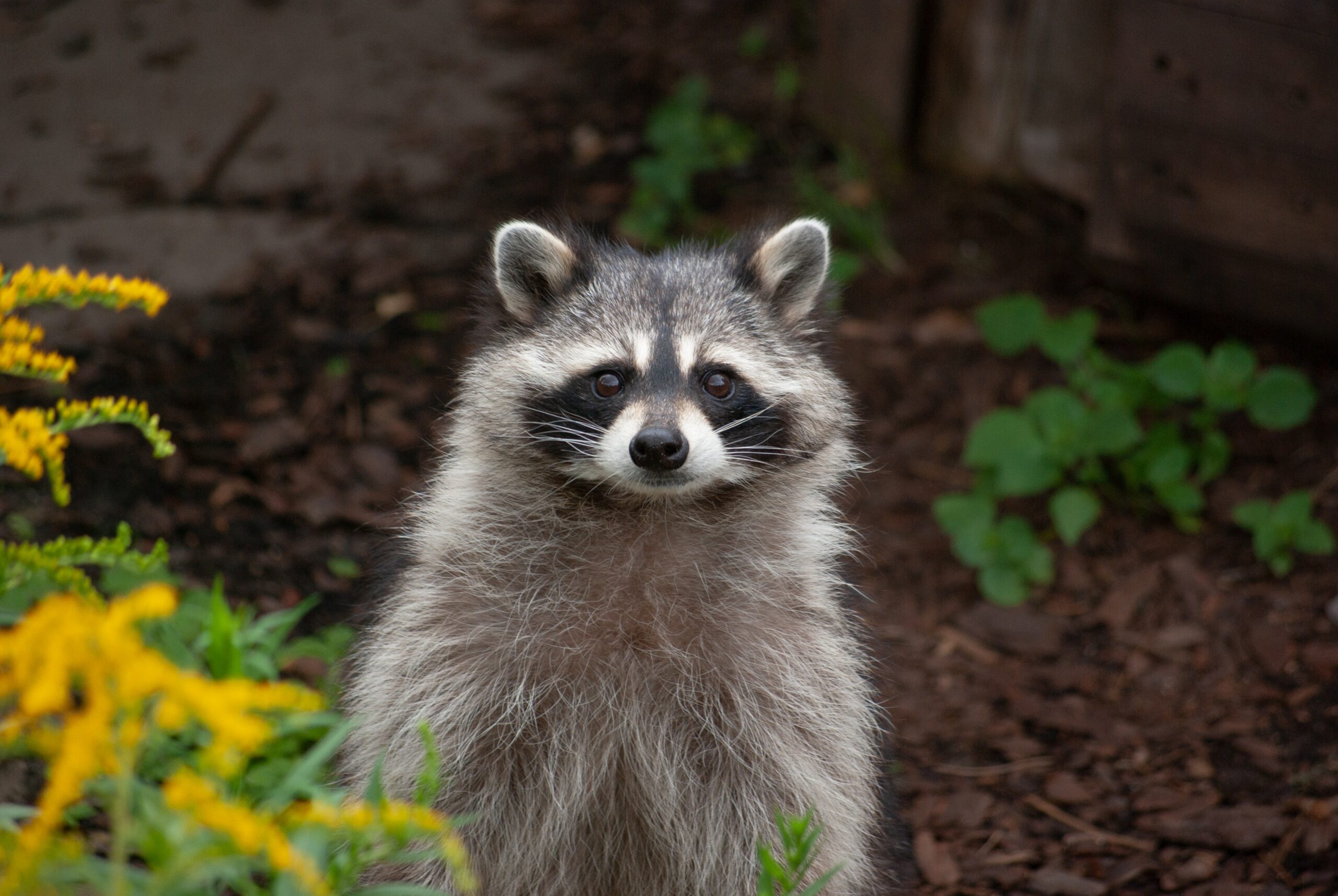
What attracts raccoons to my house?
Have you ever seen that video of the raccoon preparing to eat some cotton candy? He dips it into a puddle to clean it off before consuming it, and is visibly confused when the sugar dissolves in the water and disappears. It’s pretty cute!
There are plenty of similar videos of raccoons that might make them seem like cute, friendly animals– but they’re not quite as harmless as they may seem.
Are raccoons dangerous?
While it’s not very common for raccoons to be outright aggressive to humans, they still have sharp teeth and claws that can potentially cause damage.
If you happen upon a raccoon who feels that you’re threatening it, its babies (also known as kits!), or its nest, it might respond by being aggressive and scratch or bite you.
Plus, while people generally know to keep their distance from raccoons, curious pets might not have the same understanding– and a dog or cat that tries to get too close to a raccoon could also be injured by a raccoon bite or scratch.
A bite from a wild animal is never a good thing and should always be checked out by a medical professional, and this is definitely true for raccoon bites. Raccoons can carry rabies, canine distemper, roundworms, and other diseases or parasites.
Where do raccoons live?
Raccoons like to build their dens in dry, sheltered spots where they’re safe from predators. These can include outdoor spaces like hollow trees, crevices in rock formations, or in dense shrubbery– but they can also include parts of your home, like your chimney, crawl spaces, and underneath your porch.
They’re pretty resourceful animals, which means that their dens could be anywhere, including abandoned vehicles and buildings.
Why are there raccoons in my house or yard?
Seeing the occasional raccoon outside your home is usually not a cause for concern. They live all over the United States and are typically just searching for food.
However, frequent sightings might indicate that there’s something in your home or on your property that is giving raccoons the “green light” to build dens and find food there.
If you’re seeing a lot of raccoon activity, the first thing you should do is double-check your garbage cans.
While raccoons can eat insects, fruits, and other things commonly found in nature, they are particularly attracted to kitchen trash that includes discarded meat or fish scraps. In fact, if raccoons have discovered that these scraps are easily accessible on your property, they’ll be motivated to return– and bring their friends.
To solve this problem, make sure that your trash cans are always covered by a lid that’s fully closed.
How can I prevent raccoons from coming into my yard or house?
While there are some DIY tips you can use to repel raccoons, like special gadgets to secure your trash cans or scent repellents, it’s best to leave this job to the professionals.
Professional pest control technicians can survey your home and locate any openings where raccoons might be finding their way in, so you can seal them up and keep your home secure. Rather than just scaring the raccoons away temporarily, pest control services will help you keep your home a pest-free zone with routine maintenance visits.
If you’re ready to rid your home and property from raccoons and other unwanted pests, give Hopper a call today. We’re here to help!
